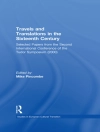In ‚Judith, a Play in Three Acts; Founded on the Apocryphal Book of Judith, ‚ Arnold Bennett crafts a richly layered narrative that delves into themes of heroism, femininity, and moral conflict, all set against a backdrop of ancient biblical history. The play’s structure is emblematic of its time, showcasing Bennett’s prowess in dramatic dialogue and character development while simultaneously invoking the moral dilemmas faced in the Apocryphal text. With a keen focus on the titular character, Bennett reimagines Judith not merely as a historical figure but as an emblematic representation of strength and cunning, presenting her story with elegant language and empathetic depth that encourages reflection on human resilience and ethical choices in the face of oppression. Arnold Bennett, a prominent figure in the early 20th-century literary scene, is well-known for his deep engagement with sociocultural themes, particularly the shifting dynamics of the British class system. His fascination with the intersection of personal and societal challenges is evident throughout his oeuvre. Bennett’s interest in the Apocryphal Book of Judith reveals his broader curiosity about the role of women in history and the complexities of morality, further demonstrating his literary versatility and depth. ‚Judith‘ is a must-read for those who appreciate thought-provoking drama that intertwines historical narratives with modern existential inquiries. Bennett’s exploration of Judith’s character will resonate not only with scholars of biblical literature but also with anyone interested in the enduring nature of female empowerment. This play invites the reader to reflect on timeless questions of courage and morality, making it a compelling addition to any literary collection.
Über den Autor
Enoch Arnold Bennett (1867–1931) was a distinguished English novelist, playwright, critic, and essayist whose contribution to literature spanned several genres, reflecting his versatility and literary depth. Bennett’s early works gave insight into the lives and aspirations of the middle and lower classes of the provincial towns, capturing the essence of English life outside the capital with a poignant attention to detail. His most famous novels include ‚The Old Wives‘ Tale‘ (1908) and ‚Clayhanger‘ (1910), which painted a vivid picture of the transformation within English society during the Industrial Revolution.
Although Bennett is primarily known for his novels, his work in drama exemplifies his adaptive storytelling and flair for characterization. ‚Judith, a Play in Three Acts‘ illuminates Bennett’s penchant for classical themes, employing the Apocryphal Book of Judith as a foundation. This work, although less recognized compared to his realist novels, showcases Bennett’s breadth in engaging with historical and biblical narratives, transferring them onto the stage with the same psychological acuity evident in his prose. Bennett’s literary style often reflected the Realist tradition, characterized by its focus on believable characters and situations, eschewing the extravagant or fantastical. He was a prolific writer whose works continue to be studied for their representation of early 20th-century life and society in England.












